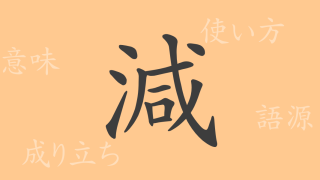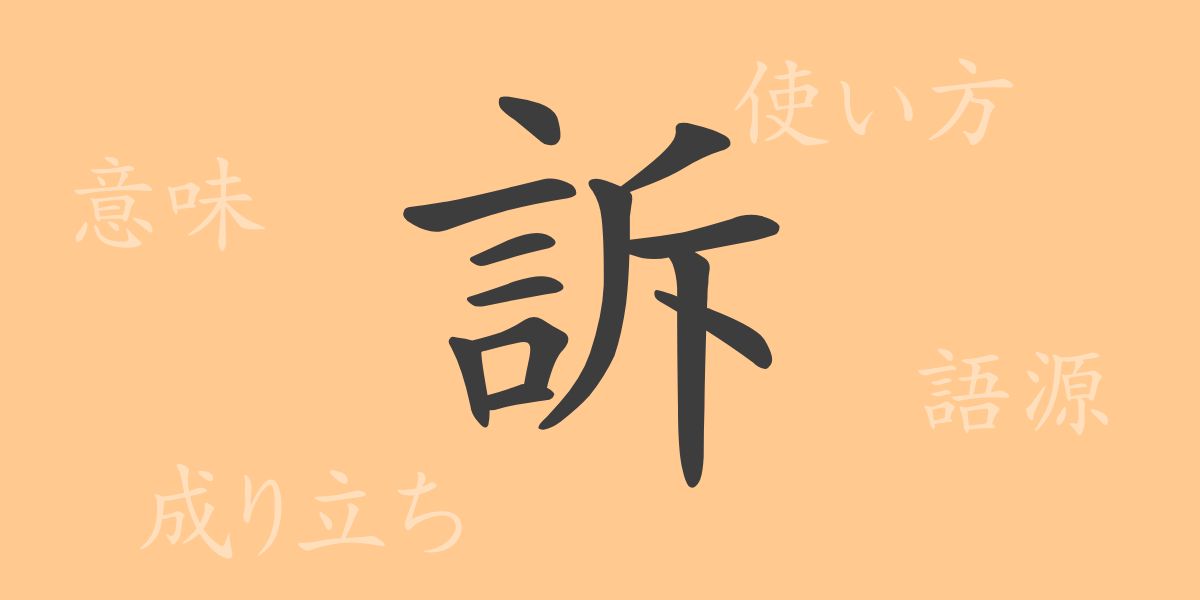In Japanese culture, each Kanji is deeply rooted, possessing its own unique history and meaning that enriches the language. Among the common Kanji, “訴” (ソ) is frequently used in legal contexts and everyday conversations, making it a crucial character. This article explores the etymology, meanings, usages, readings, stroke count, and the radicals of “訴” (ソ), as well as phrases, idioms, and proverbs involving this Kanji. We aim to deepen readers’ understanding of “訴” (ソ) and enable its proper use.
Origins of 訴 (ソ)
The Kanji “訴” (ソ) derives from ancient Chinese pictographs. It originally combined the radical “言” (ゴンベン), depicting speech, with “欠” (ケン), indicating action, symbolizing the act of “speaking out to ask for something.” Over time, the character has evolved, but its fundamental meaning has remained unchanged.
Meaning and Usage of 訴 (ソ)
“訴” (ソ) carries meanings such as “to accuse,” “to tell,” and “to request.” In legal terms, it refers to initiating lawsuits or making an appeal, while in everyday conversation, it is used to express grievances or desires. This Kanji forms various phrases through combinations with other characters, widely used across different contexts.
Readings, Stroke Count, and Radical of 訴 (ソ)
Here are the basic details about the Kanji “訴” (ソ):
- Readings: The on’yomi (Sino-Japanese reading) is “ソ” (ソ), and the kun’yomi (native Japanese readings) include “うった(える)” (ウッタエル).
- Stroke Count: A total of 12 strokes.
- Radical: The radical is “言” (ゴンベン), associated with characters related to speech.
Phrases, Idioms, and Proverbs Using 訴 (ソ) and Their Meanings
There are numerous phrases and idioms involving “訴” (ソ), such as:
- 訴訟 (ソショウ): Legal disputes handled in court.
- 訴える (ウッタエル): To strongly assert one’s opinions or emotions.
- 冤罪を訴える (エンザイヲウッタエル): To claim one’s innocence.
- 心に訴える (ココロニウッタエル): To appeal emotionally.
These phrases and idioms are commonly used in everyday life and business contexts.
Summary on 訴 (ソ)
The Kanji “訴” (ソ) has been used throughout history as a means for people to convey their emotions and demands. It plays a vital role not only in legal contexts but also in everyday communication, supporting the rich expressiveness of the Japanese language. Through this article, we hope readers will understand the background and applications of “訴” (ソ), enabling more appropriate and nuanced use of words.

























